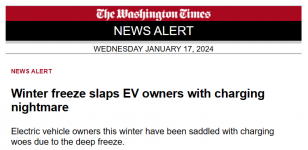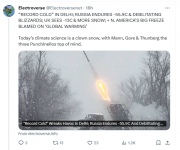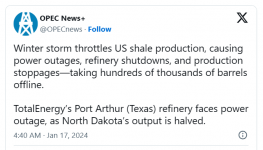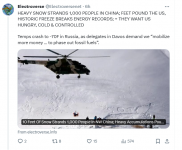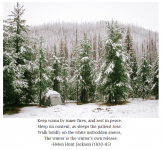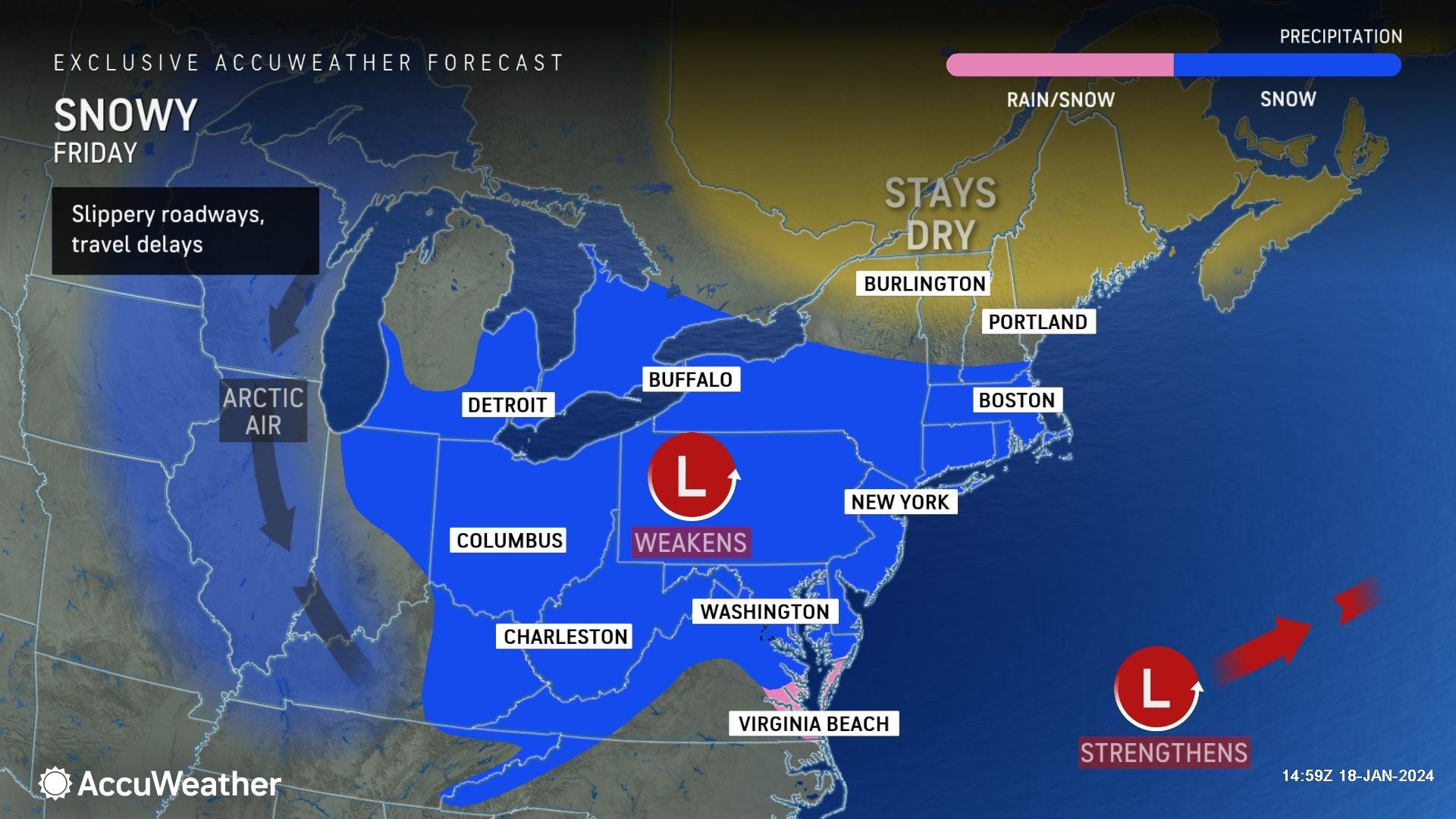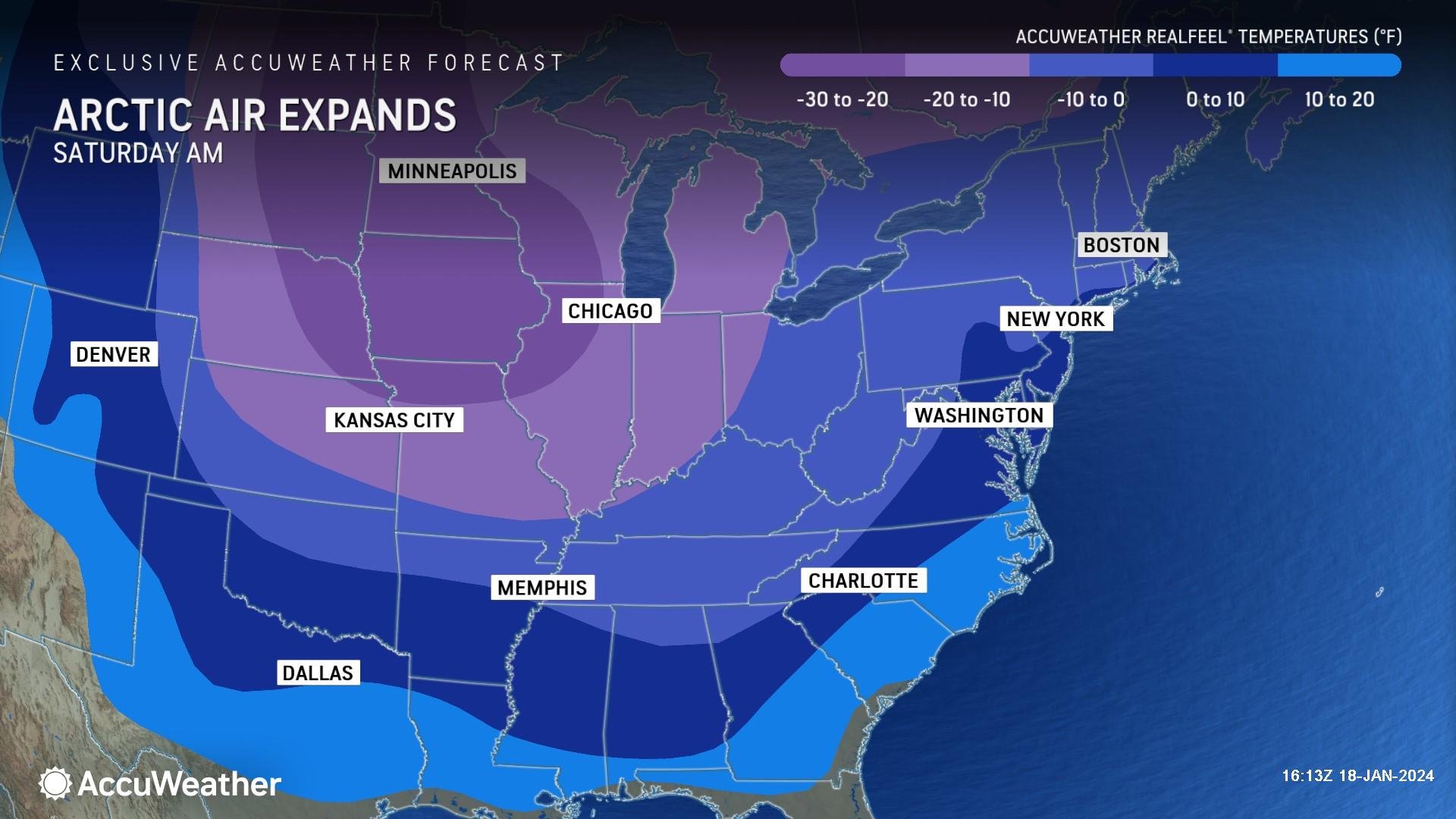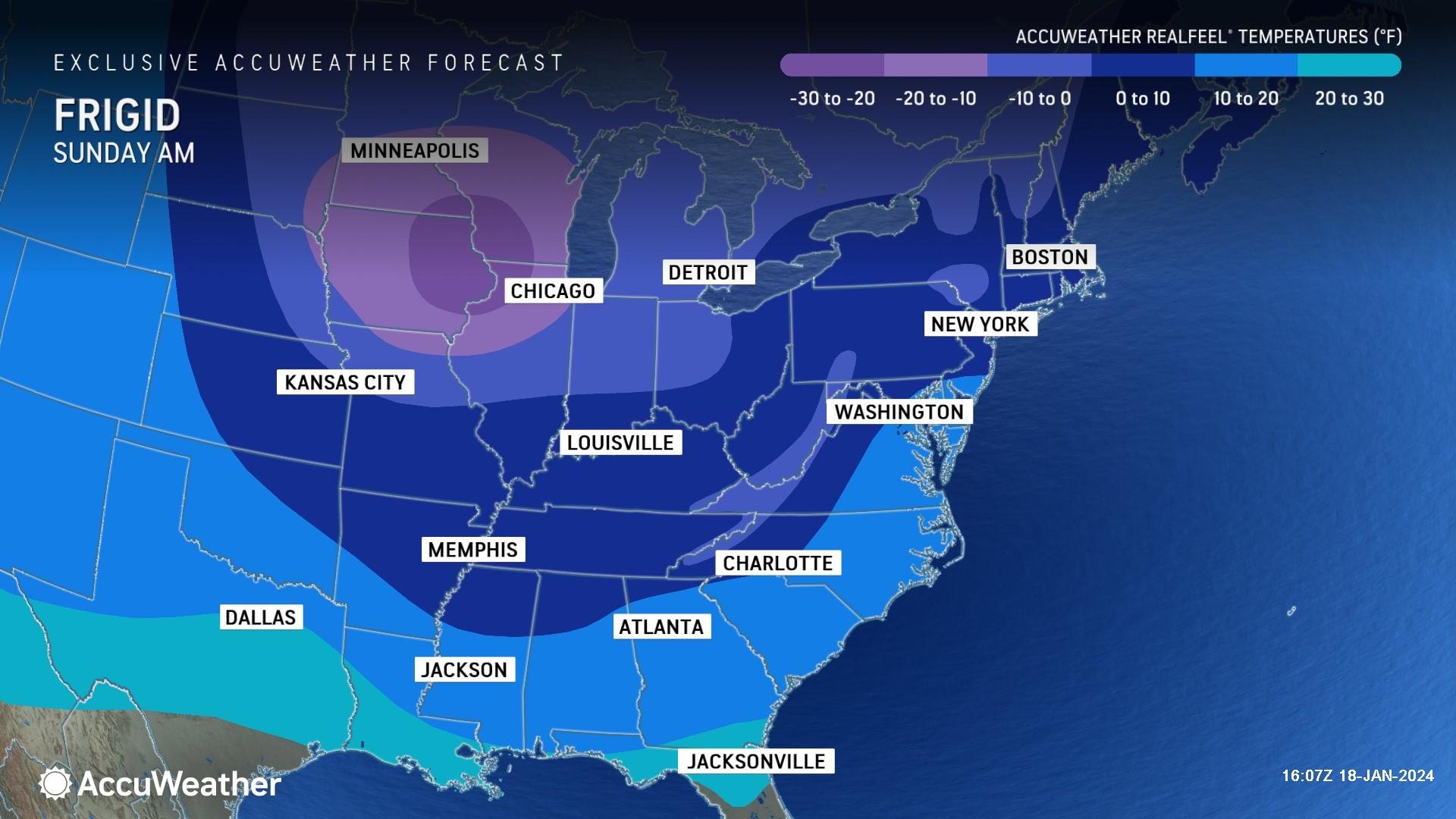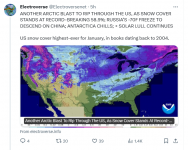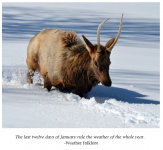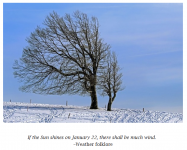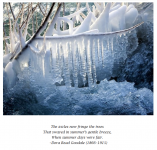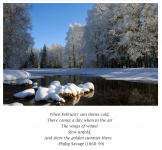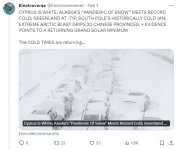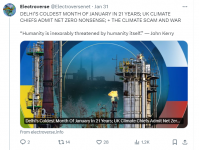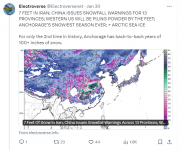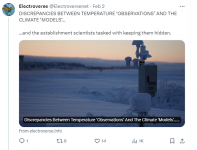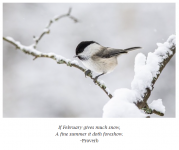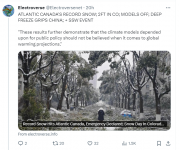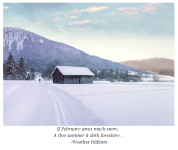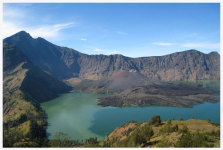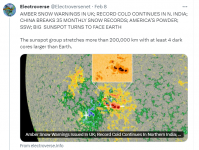You are using an out of date browser. It may not display this or other websites correctly.
You should upgrade or use an alternative browser.
You should upgrade or use an alternative browser.
Solar Grand Solar Minimum part deux
- Thread starter Dennis Olson
- Start date
-
- Tags
- grand solar minimum
northern watch
TB Fanatic
northern watch
TB Fanatic
northern watch
TB Fanatic
northern watch
TB Fanatic
Cold Blast Takes Half Of North Dakota's Oil Production Offline
BY TYLER DURDENZERO HEDGE
WEDNESDAY, JAN 17, 2024 - 07:45 PM
Bone-chilling temperatures in the US Midwest have forced oil and gas producers in North Dakota to curb output because of operational disruptions stemming from freeze-offs and shut-ins.
Bloomberg reports 650,000 to 700,000 barrels of oil output a day have been taken offline. The state, home to the Bakken shale formation, produced 1.2 million barrels a day on average in October.
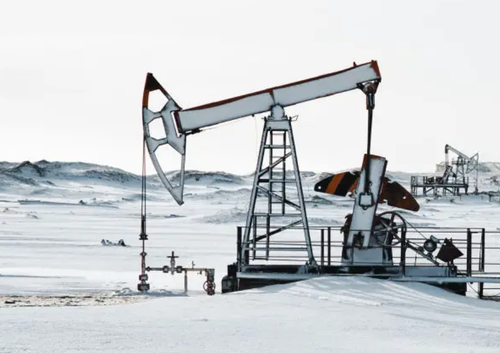
Average temperatures across the state have averaged below zero for nearly a week. The good news: Temps are expected to rise to 30-year norms by the end of the month, but forecasts at the moment show another possible cold blast slated for early February.
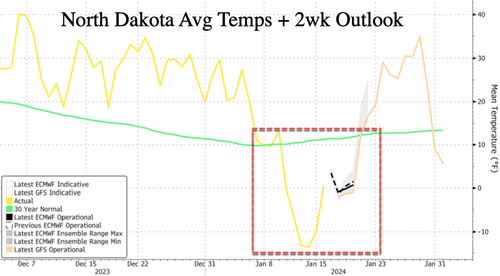
Average temps across the Midwest region are expected to rise from about zero to the 30-year trend of around 30F by next week.
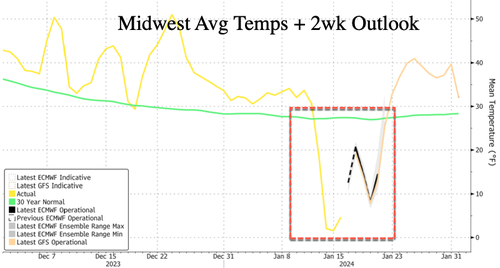
In natural gas markets, energy research firm Criterion Research said Rockies NatGas production is set to return to normal levels following operational disruptions.
Besides disruptions to oil and NatGas production, several power grids have been under strain because cold weather has boosted heating demand to record highs. Texas's power grid had issues earlier this week, while the Tennessee Valley Authority asked customers Wednesday morning to conserve power.Within the Rockies production areas, temperatures remain brutally cold in the Williston Basin for the next three days. The DJ Basin (Colorado/Wyoming) will see a return to the 15-20F range as well by the end of the week, whereas San Juan/New Mexico temps gradually warm into the weekend.
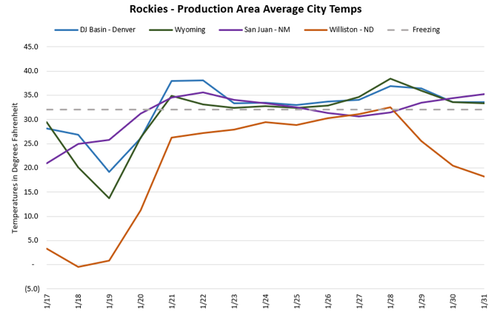
As of today, Rockies supply levels remain at lows of 9.36 Bcf/d.
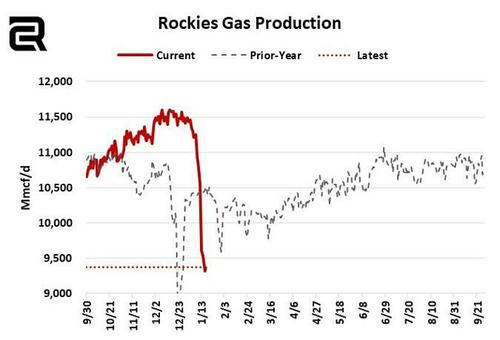
Also, in Texas, critical energy export terminals in the Gulf were disrupted earlier this week due to the cold.
News today: Motiva Enterprises' Port Arthur Refinery, the largest oil refinery in North America, with a capacity of 630,000 barrels per day, in Port Arthur, Texas, suffered disruptions due to cold weather.
Someone needs to tell the unelected officials at WEF that folks in the Western Hemisphere would like more global warming ASAP.
Cold Blast Takes Half Of North Dakota's Oil Production Offline | ZeroHedge
ZeroHedge - On a long enough timeline, the survival rate for everyone drops to zero
northern watch
TB Fanatic
northern watch
TB Fanatic
northern watch
TB Fanatic
northern watch
TB Fanatic
northern watch
TB Fanatic
northern watch
TB Fanatic
northern watch
TB Fanatic
West
Senior
Ha, it's a given when you live in Oklahoma!
What I like about that tree picture, in Oklahoma that's also a compass. To the left of that picture is north. And the picture was taken from the west side of that tree.
It's true!
packyderms_wife
Neither here nor there.
This and if you want to see what's going to happen for the coming summer then check out the weather south of the equator!
northern watch
TB Fanatic
northern watch
TB Fanatic
northern watch
TB Fanatic
northern watch
TB Fanatic
northern watch
TB Fanatic
northern watch
TB Fanatic
northern watch
TB Fanatic
northern watch
TB Fanatic
northern watch
TB Fanatic
northern watch
TB Fanatic
northern watch
TB Fanatic
northern watch
TB Fanatic
northern watch
TB Fanatic
northern watch
TB Fanatic
I would like to see the jet stream imposed on the temperature map
jed turtle
a brother in the Lord
Thank you Northern Watch!
it has been a mostly mild winter here in Maine, but your reports above have shaken me out of my winter doldrums to straighten up and plan what I am going to do to minimize next year’s winter effects on my surviving. Bigger woodpile, more insulation, bigger garden, etc. dome over the entire house? I bet the town tax authority would just love that idea! But the colder it gets, the less illegal and legal migration to the northern areas. Fine with me. Lowers the crime rate…
it has been a mostly mild winter here in Maine, but your reports above have shaken me out of my winter doldrums to straighten up and plan what I am going to do to minimize next year’s winter effects on my surviving. Bigger woodpile, more insulation, bigger garden, etc. dome over the entire house? I bet the town tax authority would just love that idea! But the colder it gets, the less illegal and legal migration to the northern areas. Fine with me. Lowers the crime rate…
northern watch
TB Fanatic
northern watch
TB Fanatic
northern watch
TB Fanatic
northern watch
TB Fanatic
northern watch
TB Fanatic
northern watch
TB Fanatic
I did not know about this year 1258, as a Year without Summer. I think of a Year without Summer as 1816.The Year Without a Summer
The Summer of 1258 was a particularly cold summer for the world due to the eruption of a volcano in Indonesia that Time Magazine reported tossed up roughly 10 cubic miles of dust and rock into the air, blocked out the sun, and affected the entire world.
View attachment 459888
The year 1816 AD is known as the Year Without a Summer because of severe climate abnormalities that caused average global temperatures to decrease by 0.4–0.7 °C (0.7–1 °F).[1] Summer temperatures in Europe were the coldest of any on record between 1766 and 2000, resulting in crop failures and major food shortages across the Northern Hemisphere.


